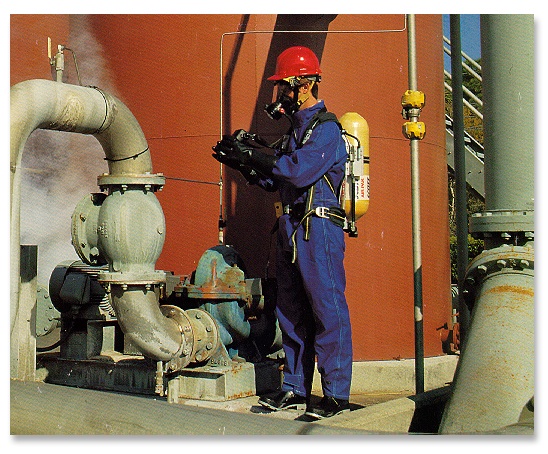Recently, Process Cooling hosted a fantastic webinar on ammonia safety, discussing practical advice for industrial refrigeration system operators. As ammonia usage continues to grow with the changing refrigeration landscape, it’s important for all of us to understand ways to keep our plants and personnel safe.
In the webinar, training and compliance engineer John Sherrill chatted about various elements of handling ammonia systems safely, from first aid to process safety management (PSM). One particularly interesting item Sherrill discussed included common misunderstandings about ammonia processes today. Are you guilty of believing any of the four below?
4 common misperceptions about ammonia processes
Misunderstanding #1: An automated ammonia refrigeration system does NOT need an operator. Unfortunately, as Sherrill said, that’s not the case. Though an automated system can perform many tasks without direct intervention, trying to run it without trained or qualified operators would be like trying to fly plane with no pilot in the cockpit. You MUST have an operator to oversee the system, ready to steer and react. The system also requires periodic maintenance according to industry and manufacturer recommendations—an automated system, of course, cannot do that on its own, either.
Misunderstanding #2: My operators only need on-the-job training. Plus, my senior-most operator can train the others—he has 20 years of experience.
Sherrill was careful not to discount the value in having an operator with decades of experience; however, simply operating a system and working on a system doesn’t provide the foundational training of what’s occurring inside the system. Why is this important? It’s necessary to evaluate unusual situations, their cause and the proper solutions. The Occupational Safety and Health Administration (OSHA) and the Environmental Protection Agency (EPA) require initial training that consists of an “Overview of the Process”: the refrigeration theory of operation. In other words, how does your ammonia system really work to provide refrigeration?
Misunderstanding #3: No one watches the refrigerator at my house 24/7, so why should I have someone monitoring my ammonia system?
True, but have you ever read stories about someone’s home freezer causing serious injury or death? Absolutely not. We have, however, seen that from ammonia systems. Ammonia is considered a highly hazardous chemical (HHC) by OSHA and EPA and must be monitored due to the hazards it presents to the public.
Misunderstanding #4: My plant doesn’t use 10,000 pounds of ammonia, so I don’t need to bother with process safety management (PSM) or risk management.
Again, this is not the case. Your plant is still at risk for dangers including hydraulic shock and trapped liquid, which typically occur due to insufficient training of ammonia system operators, leading to unsafe operation. One of the biggest pieces of PSM, risk management programs (RMP) and the General Duty Clause (for ammonia systems under 10,000 pounds) is operator and maintenance training. These include written procedures that determine which steps must be taken to ensure safe operation.
The more educated the industry is on ammonia systems, the safer our environment can be.
If you’d like to learn more about ammonia safety, feel free to comment below or call us at 800-488-2900.




